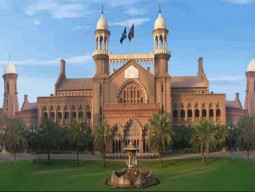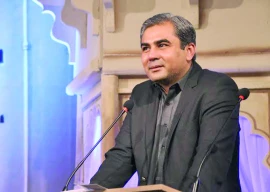
The five-judge Italian Supreme Court panel overturned a lower court conviction of Roman Ostriakov. The homeless Ukrainian man had stolen cheese and sausage worth about $4.5 from a supermarket in 2011. Upon conviction for theft in 2015, he was sentenced to six months in jail and fined €100.
In setting aside the earlier decision, the apex Court reasoned: "The condition of the defendant and the circumstances in which the seizure of merchandise took place prove that he took possession of that small amount of food in the face of an immediate and essential need for nourishment, acting therefore in a state of necessity…".
In essence, if one is poor, hungry and steals out of necessity then it is not punishable.
What does this have to do with sharia? This is certainly not what most people think of when they hear about sharia. In fact, the very mention of the term raises not so positive imagery. In some, it brings visions of a strict and unforgiving society of formal law and order. Yet in others, it harkens back to a society, which may or may not be seen as utopian depending on the beholder.
Opinions about what is or isn’t an Islamic society are dime a dozen, but the precedent for the Italian court’s reasoning was clearly established under the sharia centuries ago. Hazrat Omar bin Khattab (RA), the second caliph, sat in judgment over thieves and when he learnt that they had stolen out of necessity, he did not follow through with the punishment. He summoned their employer and admonished him for exploiting them and not compensating his workers adequately. On a broader level, Hazrat Omar (RA) also suspended the punishment of cutting off hands during times of famine or hardship. Some jurists have extrapolated from this that such hadd (translated as fixed) punishments are only to be applied when a just Islamic society is in place. Indeed, internationally recognised Islamic scholar Tariq Ramadan has called for a moratorium on hadd punishments until scholars discussed their relevance and applicability in contemporary times.
The point? Sharia is about justice (social, economic and political). As Ibn al-Qayyim al-Jawziyyah said, where there is no justice there is no sharia, irrespective of the label. This philosophy of justice and mercy is what many Muslims have in mind when they think of sharia. In fact, sharia is the very essence of a Muslim’s being (spiritual, moral and religious). Indeed, this is clearly evident from the maqasid al Sharī’ah (higher objectives) as articulated by Al Ghazali and Al Shatibi among others. These objectives, are of course, the preservation of life, faith, progeny, intellect and property for the welfare of humanity and God’s other creations.
Both Islamophobes and the ultra-orthodox/traditionalist Muslims (for lack of a better term) clearly don’t see it that way. Islamophobes seek only to confirm their biases while religious puritans focus on dogma and blindly imitate (taqlid) past rulings. Both groups highlight and latch onto interpretations devoid of situational context. Indeed, it appears that the modus operandi of many Islamophobes and ultra-orthodox Muslims involves highlighting verses from the sacred text or rulings from pre-modern jurists or contemporary jurists who still think they are in the pre-modern era without regard to the broader Islamic ethical vision or context.
Some inaccurately use sharia and Islamic law interchangeably. There is also confusion and conflation of the terms sharia and Fiqh. The most accurate characterisation of what many people automatically object to as sharia are certain Fiqh positions, views or rulings (loosely subsumed under Islamic law). Sharia, on the other hand, encompasses the broad and overarching principles and methodologies while Fiqh refers to the body of derivative rules formulated by jurists. Sharia literally translated “as the way to the drinking fountain” encompasses social, political, economic, spiritual and moral principles. Fiqh and Islamic law may be closer in terms of meaning, though the two may also be different depending on context and use.
Islamic laws are the product of Islamic reasoning and analysis using the principles of Islamic jurisprudence by Islamic jurists (Fiqh), as well as laws enacted by Muslim states which accept various degrees of orthodoxy in attempting to ‘discover’ God’s will by reference to revelation, prophetic examples and the body of existing juristic opinion (from pre-modern times to contemporary times).
Contrary to what many (Muslims and non-Muslims) believe, sharia is far more comprehensive, nuanced and sophisticated than understood. Indeed, thinkers including Muhammad Iqbal articulated the importance of these principles but also emphasised how ijtihad (independent reasoning) was the “principle of movement in Islam”.
Interestingly, the sophistication of Islamic jurisprudence and its impact on other legal systems is not lost on many Western legal scholars who have commented on sharia’s influence on the common law, international law, and even international humanitarian law. Indeed, some may be surprised to learn that the Holy Prophet Muhammad (peace be upon him) has been honoured by the US Supreme Court to acknowledge sharia’s contribution to Western legal tradition.
Meanwhile, in Pakistan, the Council of Islamic Ideology (CII) is busy advocating its obscurantist opinions ranging from protecting the Islamic “right” to marry minor girls to “lightly” beating wives. In addition to making a mockery of the sharia, these opinions ignore all of the juristic opinions and interpretations that contradict these male chauvinist and patriarchal views.
I, for one, have no objection to creeping sharia if it’s the Italian variety, but will take a pass on the CII version.
Published in The Express Tribune, June 11th, 2016.
Like Opinion & Editorial on Facebook, follow @ETOpEd on Twitter to receive all updates on all our daily pieces.






1726054615-0/OpenAI-(2)1726054615-0-270x192.webp)






COMMENTS
Comments are moderated and generally will be posted if they are on-topic and not abusive.
For more information, please see our Comments FAQ